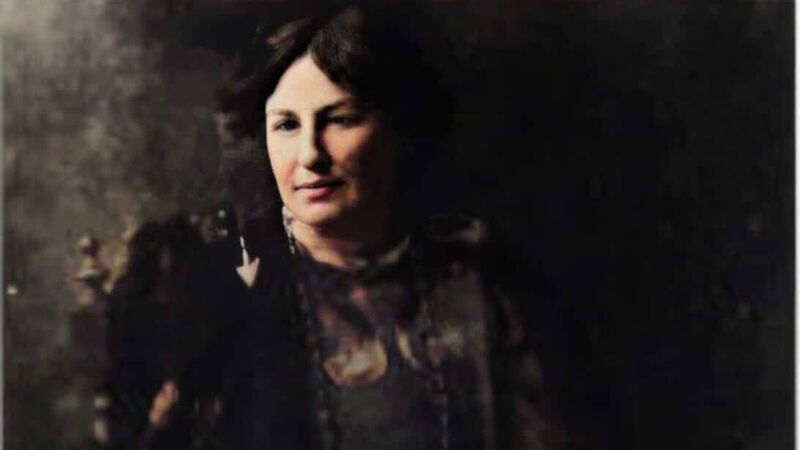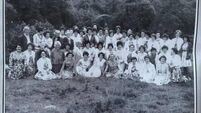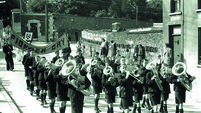The emigrants' angel who cared for poverty-stricken girls and women in Cobh

Charlotte Grace O'Brien, who cared for thousands of emigrants in Cobh before they left the auld sod for the last time
“Give me your tired, your poor, your huddled masses yearning to breathe free...”
The famous poem on the Statue of Liberty shone a beacon of light, luring millions of Irish across the sea for a new life.
But who cared for many of these often forlorn, desperate ‘huddled masses’ in their last days on Irish soil? Step forward the remarkable Charlotte Grace O’Brien.
Born partially Deaf, a result of a hereditary trait, in 1845, Charlotte’s father William was an aristocrat and nationalist whose family traced their roots to Brian Boru.
She grew up in splendour at Cahirmoyle House, Co Limerick, but when she was three, her father was sentenced to transportation, from Queenstown harbour to Australia, for a failed attempt to overthrow British rule.
He was eventually pardoned but told he could not return to Ireland, so the family lived in Brussels before finally being allowed to return to Ireland when Charlotte was seven. The young girl developed a keen interest in the world of literature but sadly both her parents died while she was in her teens.
After that, Charlotte developed a close bond with her Deaf-mute older brother Willy, and they communicated with each other using their fingers, hands and gestures. However, Willy, an outgoing daredevil compared to his studious sister, died in a horse riding accident in 1871.
After all this heartache, Charlotte must have been seeking a meaning in life, and she found it when she visited Queenstown (now Cobh) — scene of her father’s transportation years before. Here, she witnessed poverty and sickness on a grand scale and saw thousands of emigrants boarding ships to a new life.
Shocked, Charlotte acquired a house, 7, West Beach, registered it as a lodging house, and took in emigrant girls and women awaiting departure to America.
Called ‘Emigrant’s Home’, it held up to 105 beds, and its sole purpose was to provide clean, healthy conditions where people could stay in some degree of comfort. Charlotte cared for and nursed the sick, weary and poor.
In 1882, she told an American interviewer about 3,000 lodgers stayed with her each year. She also policed the ships in the harbour on which her lodgers were destined, and said: “I realised I could do nothing unless I seized the ropes into my own hands… I visited the ships along with a medical officer day after day, often beginning at 6am and going through three or four ships.”
Keen to find out herself what emigration was like, she sailed to the U.S in non-steerage, and reported: “It was all awfully dirty and disgusting and the food bad enough, but on the other hand, the people were so friendly, so good to one another, so cheery.
“I should like to see the ships provide the bedding and utensils that constitute a steerage outfit. Nobody ever thought of such a thing being done or dreamed of the provision of towels and bowls, to enable steerage folks to wash.”
Charlotte ended up living in the U.S for more than a year and oversaw the establishment of the Our Lady of the Rosary mission, dedicated to immigrant aid.
She returned to reopen her Emigrant’s Home in Queenstown, but her health was failing. In 1878, her residual hearing left her and she became totally Deaf. She took to writing. Among her books was a 1878 novel about Fenians, Light And Shade, and she also wrote poetry and children stories and contributed to periodicals like The Nation, United Ireland, and the Irish Monthly.
Following in her father’s footsteps, she was an ardent member of the Gaelic League, set up for the restoration of the Irish language, and a staunch supporter of Charles Parnell. She mainly lived alone, but always had her three dogs and was surrounded by flowers and plants. She also developed a love of botany.
Charlotte moved to Foynes, the place where she was born, as her health declined and died on June 3, 1909, aged 64.
We, the Deaf people of Ireland, will never forget about Charlotte Grace O’Brien’s achievements in fighting for the protection of the Irish poor and emigrants, as well many disabled and Deaf people. She was a great Irish writer in spite of her disability.
The Emigrants' Home in Cobh later became a Soldiers’ Home, run by Elise Sandes, and that name remains on the building.







